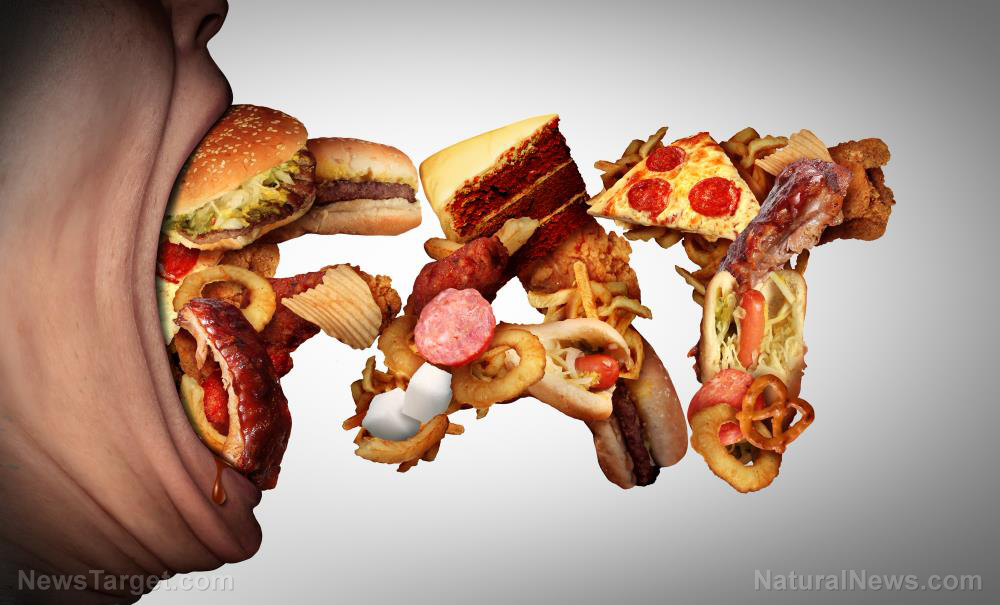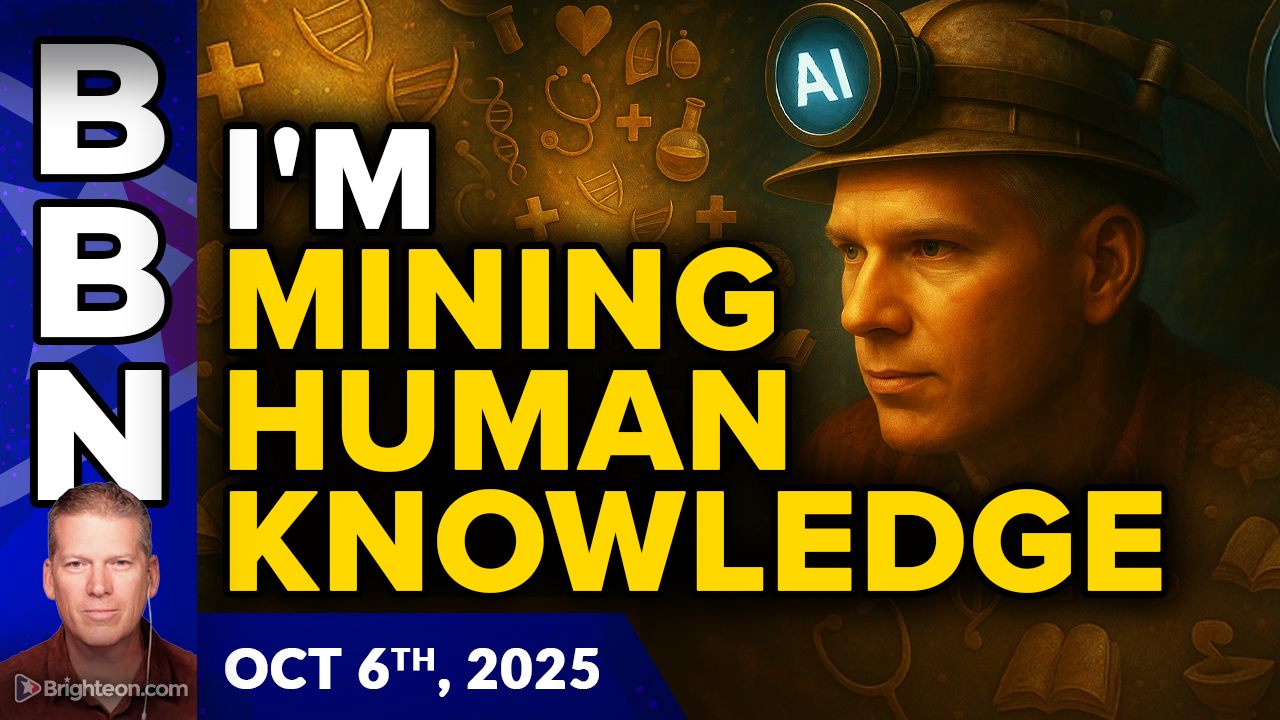Overeating driven by emotions resists GLP-1 weight loss drugs, study finds
10/05/2025 / By Willow Tohi

New research highlights that weight-loss medications, particularly GLP-1 receptor agonists (GLP-1s), may be less effective for individuals who overeat due to emotional triggers. Published in Clinical Diabetes and Healthcare, the study found that while GLP-1s can help those who respond to external food cues, they may fail to address the psychological factors behind emotional eating. The findings underscore the complexity of overeating and the need for a more holistic approach to weight management, including behavioral and psychological support.
Key points:
- GLP-1 receptor agonists are less effective for emotional eaters, as they do not address psychological factors.
- External eaters, who respond to visual or olfactory food cues, experienced greater sustained weight loss with GLP-1s.
- Emotional eaters saw initial improvements but reverted to baseline habits after one year.
- Experts recommend assessing eating behaviors before prescribing weight-loss medications.
- A combined approach of medication and psychological support may yield better long-term success.
Weight-loss medications, particularly GLP-1 receptor agonists, have emerged as a popular tool in the fight against obesity over the past decade. These drugs, which suppress hunger and slow digestion, have been shown to help many individuals achieve meaningful weight loss. However, the new study highlights a critical limitation: they do not target the emotional or psychological drivers of overeating, which can be deeply ingrained and resistant to pharmacological intervention. This finding echoes earlier research emphasizing the importance of addressing the root causes of eating behaviors, rather than focusing solely on physiological factors.
The study’s findings
The Japanese study, involving 92 individuals with type 2 diabetes, tracked participants over a year to assess the effectiveness of GLP-1s in addressing different eating behaviors. Researchers identified three primary eating patterns: emotional eating, external eating and restrained eating.
- External eaters: Participants who overate in response to external stimuli, such as the sight or smell of food, experienced significant and sustained weight loss and improved blood sugar levels. GLP-1s appeared to effectively curb their overeating habits.
- Emotional eaters: Those who turned to food in response to negative emotions, such as stress, anxiety, or depression, saw only short-term improvements. Their eating habits returned to baseline levels after one year, suggesting that GLP-1s alone were insufficient to address their emotional triggers.
- Restraint eaters: Individuals who tried to control their eating to lose weight also saw transient improvements, highlighting the complexity of weight-loss behaviors.
The study’s authors noted that GLP-1s do not address the psychological factors that underpin emotional eating, such as unresolved trauma, stress, or learned behaviors. For these individuals, additional support, such as cognitive-behavioral therapy or mindfulness practices, may be necessary to achieve long-term success.
Implications for weight loss and obesity treatment
The study’s findings have significant implications for how healthcare providers approach weight-loss treatment. Dr. Daisuke Yabe, a senior author of the study, emphasized that GLP-1s are most effective for individuals whose overeating is driven by external cues, such as food advertisements or social settings. However, for those whose eating is governed by emotional factors, medications alone may fall short.
“For people who are overeating because of addiction, it would be expected that a GLP-1 would not help,” said Dr. Joan Ifland, founder of the Addiction Reset Community. Often the underlying emotional reason for food addiction is rooted in unresolved trauma and learned behavior that food—much like other addictive substances—can soothe pain, she explained. Medication can suppress hunger, but it cannot resolve the underlying psychological struggles that drive emotional eating.
Experts recommend that healthcare providers assess a patient’s eating behaviors before prescribing weight-loss medications. This evaluation could help identify individuals who may benefit from additional psychological support, such as counseling or behavioral therapy, to address their emotional relationship with food.
Addressing emotional eating
Emotional eating is a multifaceted issue that often stems from unresolved trauma, stress, or learned behaviors. For many, food serves as a coping mechanism, providing temporary relief from negative emotions. However, this pattern can perpetuate a cycle of weight gain and emotional distress, particularly when combined with ultra-processed foods that trigger dopamine responses, reinforcing the urge to overeat.
Cognitive-behavioral therapy (CBT), mindfulness practices and food journaling have been shown to help individuals break this cycle. CBT, in particular, has been associated with significant weight loss and a reduction in emotional eating behaviors. By identifying and addressing the emotional triggers behind overeating, individuals can develop healthier coping mechanisms and reduce their reliance on food for comfort.
The road ahead for weight loss: A combined approach
The study’s findings highlight the need for a more nuanced approach to weight-loss treatment. While GLP-1 receptor agonists can be a valuable tool for managing external eating behaviors, they are less effective for those whose overeating is driven by emotional factors. A combined approach, incorporating medication, psychological support and behavioral interventions, may be necessary to achieve sustainable weight loss and improve overall health outcomes.
As the medical community continues to refine its understanding of the complex interplay between emotions, eating behaviors and weight management, one thing is clear: The path to lasting weight loss is not one-size-fits-all. For individuals struggling with emotional eating, addressing the root causes of their behavior may be the key to achieving long-term success.
Sources for this article include:
Submit a correction >>
Tagged Under:
Censored Science, emotional eating, medications, mental, Mind, mind body science, overeating, research, weight loss
This article may contain statements that reflect the opinion of the author





















